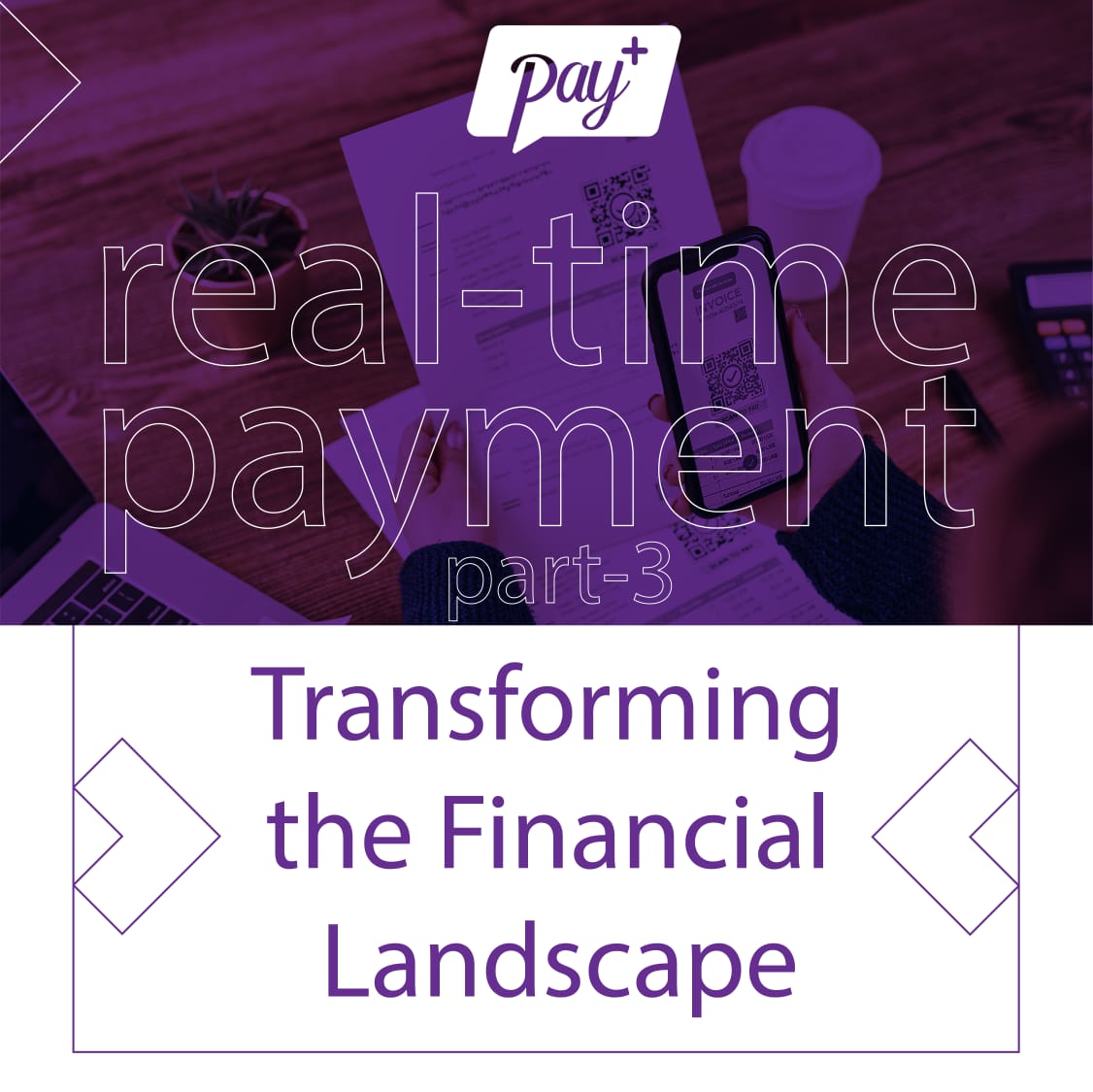

In today’s fast-paced digital world, the need for swift and efficient payment systems has become increasingly crucial. This article explores the realm of real-time payments, highlighting their benefits and their potential to revolutionise the financial landscape.
In today’s fast-paced digital world, the need for swift and efficient payment
systems has become increasingly crucial. This article explores the realm of realtime payments, highlighting their benefits and their potential to revolutionise the
financial landscape.
It also offers significant advantages in tackling the inefficiencies associated with payment floats. By reducing the amount of locked-up funds in payment systems, individuals and businesses can better utilise their resources, ensuring smoother cash flows and minimising delays. This improved efficiency paves the way for enhanced financial management and the ability to allocate funds more effectively.


The real-time payment system facilitates faster and more efficient money transfers, contributing to economic growth. With prompt fund transfers, idle money in bank accounts or other financial instruments is reduced, enabling individuals and companies to pay debts, make purchases, and invest more quickly, thus stimulating economic expansion. The increased speed and frequency of monetary transactions infuse greater momentum into the circulation of capital, fostering a dynamic and vibrant economy. This system plays a crucial role in promoting financial inclusion by allowing individuals to without access to traditional banking services to participate in economic activities. Even those in rural areas or without bank accounts can use mobile devices for payments and purchases, enhancing economic circulation. This inclusivity helps to bridge the gap between different socio-economic groups and empowers individuals to participate fully in the financial ecosystem.

Improving market efficiency is another benefit of real-time payments. By lowering barriers to trade, these systems foster competition, innovation, and productivity, which are key drivers of long-term economic growth. Increased transparency in financial transactions further contributes to an efficient market environment. As the inclusion rate has now increased, market transparency has also increased. Through this inclusivity, businesses and consumers alike can benefit from a more streamlined and cost-effective payment ecosystem. Moreover, this system creates opportunities for innovative business models to thrive. Peer-to-peer lending, crowdfunding, and micropayments are examples of business models that can benefit from real-time payment systems. These systems’ ability to process payments quickly and efficiently provides a platform for the success of new business models. This opens up avenues for entrepreneurial ventures and encourages a culture of innovation, leading to the diversification and growth of the business landscape.
Real-time payments have already made a significant impact on the payments sector, providing secure, fast, and convenient payment options. As adoption rates continue to rise, real-time payments are expected to surpass traditional methods. Emerging technologies like blockchain and virtual currencies will further enhance the speed and security of international transactions. The future holds tremendous potential for real-time payments, with continuous advancements and innovations propelling the evolution of the global financial ecosystem.
Real-time payment systems are reshaping the financial landscape by offering faster, more secure, and more convenient payment solutions. By addressing payment float inefficiencies, boosting the velocity of money, promoting financial inclusion, and enabling real-time payments, we are revolutionising the way we conduct financial transactions swiftly. The linkages between these advantages form a cohesive framework that drives economic growth, fosters innovation, and enables seamless financial interactions. As the adoption of real-time payments expands, we can anticipate a more efficient, inclusive, and interconnected global economy.